Posts by Christopher Lochhead
402 Why Your Identity Is A Choice (Not A Label) with “IRON” Mike Steadman
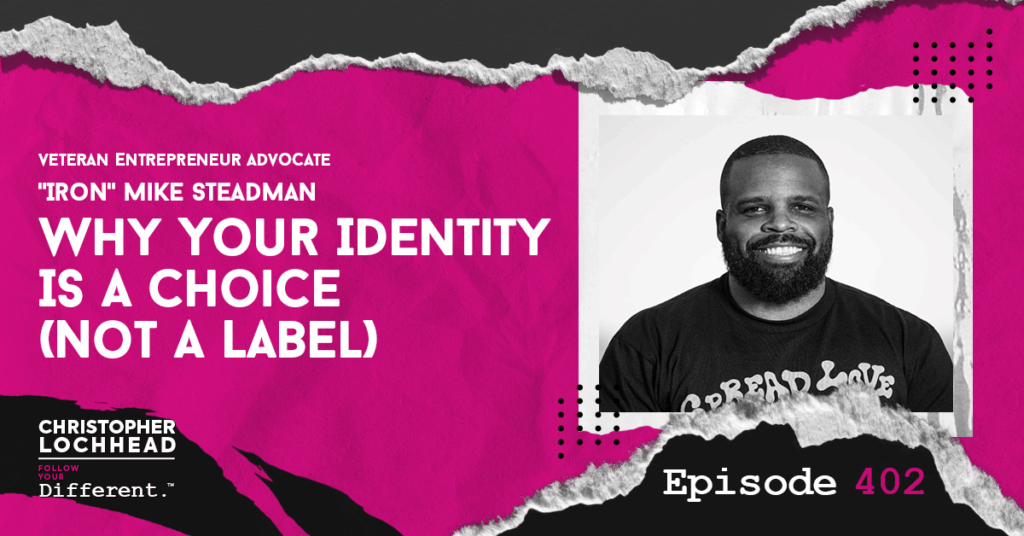
Podcast: Play in new window | Download (Duration: 57:31 — 39.5MB) | Embed
Subscribe: Apple Podcasts | Spotify | Pandora | RSS | More
On this episode of Follow Your Different, Christopher Lochhead welcomes “IRON” Mike Steadman, a former Marine officer, national boxing champion, and entrepreneur into another installment of Creator Capitalist Conversations.
Together, they explore Mike’s inspiring journey from military service to empowering Black veteran entrepreneurs. The conversation highlights the importance of identity, resilience, and mindset in overcoming challenges and reinventing oneself.
This episode is a must-listen for anyone seeking inspiration and actionable advice on personal growth and entrepreneurial success.
You’re listening to Christopher Lochhead: Follow Your Different. We are the real dialogue podcast for people with a different mind. So get your mind in a different place, and hey ho, let’s go.
Embracing Identity Transformation
In the world of entrepreneurship, few stories are as compelling as that of “IRON” Mike Steadman: a former Marine officer, three-time national boxing champion, and now a category designer and advocate for Black veteran entrepreneurs.
Mike’s identity was deeply rooted in his military service. Transitioning to civilian life, he faced the challenge of being seen as “just a boxing coach” rather than the multifaceted leader he knew himself to be.
Working with performance psychologists and entrepreneurial mental health coaches, Mike learned to step back and view himself from a broader perspective, a process he calls “psychological distancing.”
By intentionally shaping his identity, Mike was able to move from being defined by his past roles to actively designing his future as an entrepreneur and advocate.
Resilience Through “Time Under Tension”
Just as boxers build strength and skill through grueling training, entrepreneurs develop their instincts and capacity by enduring the pressures of business.
When COVID-19 shut down Mike’s in-person boxing business, he faced a moment of defeat. Instead of giving up, he used the crisis as a catalyst to pivot—launching a podcast and building a new business model from scratch.
Motivation Beyond Money
Financial goals are important, but lasting motivation comes from deeper sources—purpose, impact, and community.
Mike found that helping others succeed (as a ghostwriter and editor) was more fulfilling than chasing personal accolades. Inspired by a business coach’s analogy, Mike emphasizes nurturing the “soil” of your life—health, relationships, and mentorship—so your business can thrive.
Mike also noticed that as he hit financial milestones, the excitement faded. He began to set new, personal challenges—like running a marathon or reaching Everest Base Camp—to keep himself engaged and fulfilled.
To hear more from “IRON” Mike Steadman and his thoughts on reinventing oneself and looking at things from different POVs, download and listen to this episode.
Bio
“IRON” Mike Steadman is a Marine Corps Infantry Officer turned entrepreneur, author, and boxing coach. As the founder of IRONBOUND Boxing, he empowers youth in Newark through boxing, mentorship, and enrichment programs.
Mike also leads IRONBOUND Media, helping veteran-owned businesses build impactful brands through podcasting. A U.S. Naval Academy graduate and combat veteran, his leadership philosophy integrates discipline, resilience, and service.
Mike hosts the “Confessions of a Native Son” podcast, exploring race, business, and personal growth. Passionate about social impact, he continues to create opportunities for underserved communities, embodying his mission to fight for those without champions in their corner.
Links
Connect with “IRON” Mike Steadman!
Website: IronboundBoxing.org | IronboundMedia.com | DogWhistleBranding.com
Linkedin: in/Iron-Mike-Steadman
Instagram: @IronMikeSteadman
We hope you enjoyed this episode of Christopher Lochhead: Follow Your Different™! Christopher loves hearing from his listeners. Feel free to email him, connect on Facebook, X (formerly Twitter), Instagram, and subscribe on Apple Podcast / Spotify!
401 Listen To Your Top 3% Superconsumers And Find What’s Weird | Building with Buyers

Podcast: Play in new window | Download (Duration: 1:00:25 — 41.5MB) | Embed
Subscribe: Apple Podcasts | Spotify | Pandora | RSS | More
On this episode of Christopher Lochhead: Follow Your Different, the script is flipped and we listen to Christopher Lochhead explore the critical theme of customer obsession, especially within startups on the Building with Buyers podcast, hosted by Anna Furmanov.
This conversation focuses on the importance of empathy, both for customers and within teams, and advocates for breaking down departmental silos to foster collaboration and drive sustainable growth.
You’re listening to Christopher Lochhead: Follow Your Different. We are the real dialogue podcast for people with a different mind. So get your mind in a different place, and hey ho, let’s go.
Christopher Lochhead on Understanding the “Existing Market Trap”
Christopher Lochhead explains that many startups fall into the “existing market trap,” where they build something new but compare it to existing products. This approach stifles innovation and fails to create new demand. Instead, startups should focus on understanding their customers deeply and innovating based on their needs.
Christopher introduces the concept of “super consumers,” who are passionate individuals at the edges of the bell curve. These customers are not just users; they are evangelists who can help shape and define categories. He suggests that you look for customers who are highly engaged with your product and vocal about their experiences. You then create exclusive communities or programs for these super consumers to gather feedback and encourage them to spread the word about your product.
The Importance of Authentic Dialogue
Christopher discusses the decay of civil discourse in society and its impact on authentic dialogue. He believes that healthy debate and the exchange of differing viewpoints are essential for a functioning society and fostering innovation in business.
Christopher also shares his personal experiences with being de-platformed on social media for promoting free speech. He argues that the ability to engage in civil discourse is crucial for personal expression and fostering innovation.
Challenges in Startups
Anna and Christopher discuss the common pitfalls startups face as they grow, such as shifting focus from customer feedback to product development and sales.
Christopher shares examples of companies that have thrived by prioritizing customer relationships and adapting their offerings based on customer needs. Some of the things they could do are to analyze how successful companies maintain their customer focus and apply similar strategies to your business. They should also be willing to pivot your strategies based on customer feedback and market changes.
To hear more from Christopher Lochhead and Anna Furmanov, download and listen to this episode.
Links
Like what you hear? You can check out Anna Furmanov’s podcast, Building with Buyers.
We hope you enjoyed this episode of Christopher Lochhead: Follow Your Different™! Christopher loves hearing from his listeners. Feel free to email him, connect on Facebook, X (formerly Twitter), Instagram, and subscribe on Apple Podcast / Spotify!
400 The Existing Market Trap with Al Ramadan
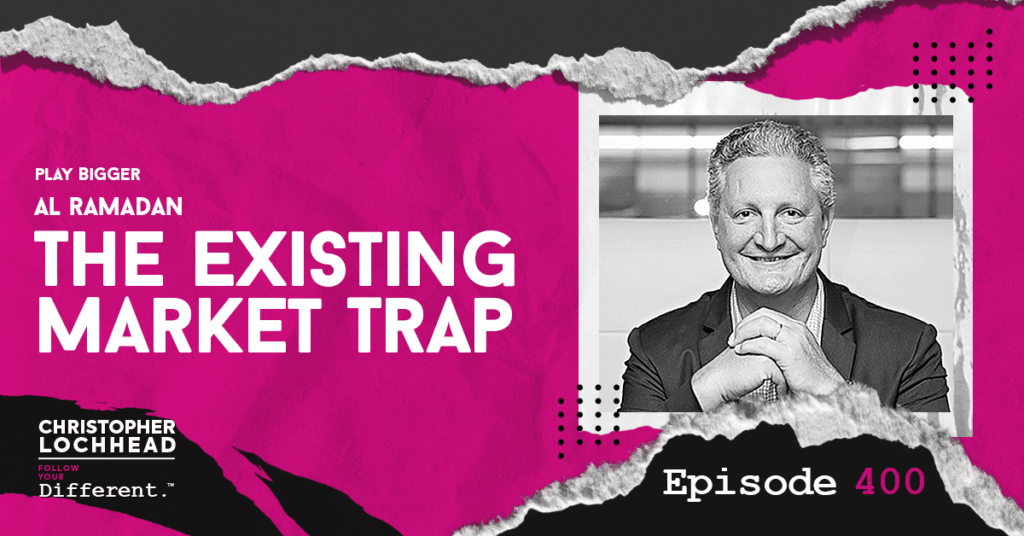
Podcast: Play in new window | Download (Duration: 1:32:34 — 63.6MB) | Embed
Subscribe: Apple Podcasts | Spotify | Pandora | RSS | More
On this special 400th episode of Christopher Lochhead: Follow Your Different, Christopher and guest Al Ramadan discuss their new book, “The Existing Market Trap.”
They explore the pitfalls businesses face when trying to innovate within established market categories, emphasizing that fitting new ideas into old frameworks stifles innovation. They advocate for category design, which involves creating new market categories rather than competing within existing ones.
They also introduce the “13 deadly sins” that entrepreneurs often commit, offering insights to help avoid these common mistakes.
You’re listening to Christopher Lochhead: Follow Your Different. We are the real dialogue podcast for people with a different mind. So get your mind in a different place, and hey ho, let’s go.
Al Ramadan on Understanding the Existing Market Trap
The “existing market trap” refers to the tendency of businesses to try to fit new ideas into old categories. This approach often stifles innovation and growth, as companies focus on competing for market share rather than creating entirely new markets. Al and Christopher argue that this mindset is fundamentally flawed and that true innovation comes from redefining problems and opportunities rather than fitting new solutions into outdated categories.
Some of the consequences of the market trap include financial loses, Constantly competing in saturated markets can lead to exhaustion and disillusionment among founders, and loss of strategic direction by the company.
Al Ramadan on The Power of Category Design
Category design is a business strategy that focuses on creating new market categories rather than competing within existing ones. This approach allows businesses to escape the constraints of established market definitions and pursue groundbreaking innovations.
Why is Category Design Important? Category design is essential because it empowers companies to reshape the market landscape rather than simply compete within it. Instead of fitting into existing frameworks, successful businesses create entirely new categories that address previously unmet needs, unlocking fresh opportunities for innovation and growth. This strategic approach also plays a critical role in building belief, both internally and externally, in a company’s vision. By shaping perception and defining a unique space, category design helps generate demand, positioning the business as a leader rather than a follower.
The 13 Deadly Sins of Category Design
Al and Christopher introduce the concept of the “13 deadly sins” that entrepreneurs often commit when scaling their businesses. These sins serve as cautionary tales for founders who may be tempted to chase after existing market demand rather than focusing on creating new opportunities.
Several common pitfalls can hinder a company’s success in the market. One is the Engineer’s Dilemma, where teams become overly focused on technical features instead of addressing broader market needs. Another is the Obviously Better Fallacy—the mistaken belief that having a superior product alone guarantees market success. Finally, the Horizontal Tool Illusion occurs when a company tries to serve everyone, rather than honing in on a specific market segment. These missteps can dilute value, confuse customers, and ultimately prevent a product from gaining traction.
To hear more from Christopher and Al Ramadan about the existing Market Trap, download and listen to this episode.
Bio
Al Ramadan is a co-founding partner of Play Bigger Advisors and coauthor of the book, Play Bigger. He also co-founded Quokka Sports, which revolutionized the way people experience sport online.
Al then joined Macromedia and Adobe, where he spent almost ten years changing the way people think about great digital experiences. At Adobe, Al led teams that created the Rich Internet Applications category and helped develop the discipline of experience design.
In the early ‘90s he applied data science to Australia’s Americas Cup — an innovation in sports performance analytics. His work in sailing led directly to the idea for Quokka. He lives in Santa Cruz, California.
Links
Connect with Al Ramadan!
Play Bigger | LinkedIn | Category Contenders | The Science Behind Category Design
We hope you enjoyed this episode of Christopher Lochhead: Follow Your Different™! Christopher loves hearing from his listeners. Feel free to email him, connect on Facebook, X (formerly Twitter), Instagram, and subscribe on Apple Podcast / Spotify!
399 How DUDE Wipes Flushed The Competition And Became A $219M Category King | Creator Capitalist Conversations
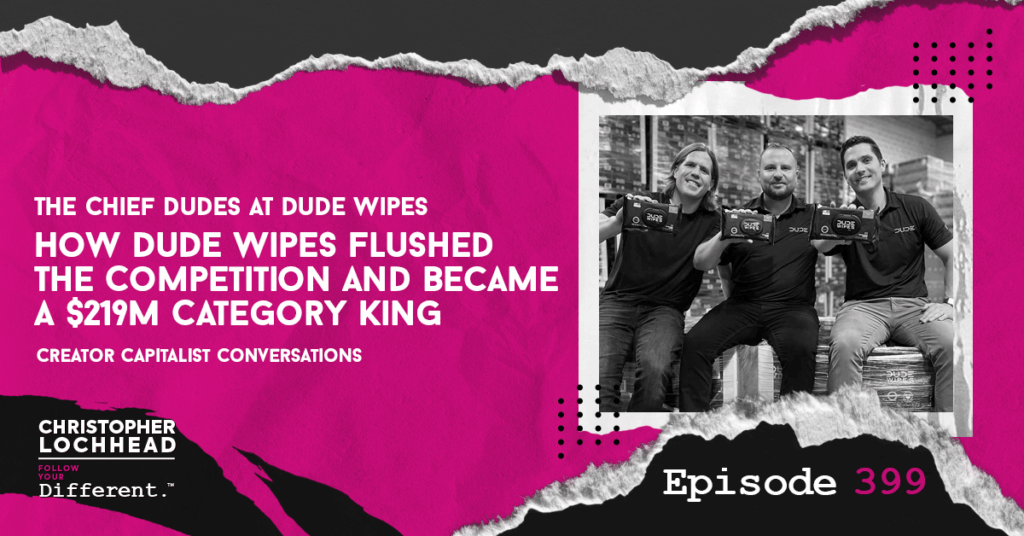
Podcast: Play in new window | Download (Duration: 54:23 — 37.3MB) | Embed
Subscribe: Apple Podcasts | Spotify | Pandora | RSS | More
On this episode of Christopher Lochhead: Follow Your Different, we have a Dude conversation with the chief Dudes of DUDE Wipes to talk about how they wiped their competition and became the leader in their category.
This episode is part of the Creator Capitalist Conversations, a mini-series spotlighting real-life legends who have rejected traditional career paths and built lives around what makes them different. These are stories of people who didn’t wait to get picked. They picked themselves—and started building careers that pay them to be radically them.
You’re listening to Christopher Lochhead: Follow Your Different. We are the real dialogue podcast for people with a different mind. So get your mind in a different place, and hey ho, let’s go.
Links
Learn more about Dude Wipes!
We hope you enjoyed this episode of Christopher Lochhead: Follow Your Different™! Christopher loves hearing from his listeners. Feel free to email him, connect on Facebook, Twitter, Instagram, and subscribe on Apple Podcast / Spotify!
398 Why Quitting Isn’t As Risky As You Think with Carylyne Chan | Creator Capitalist Conversations
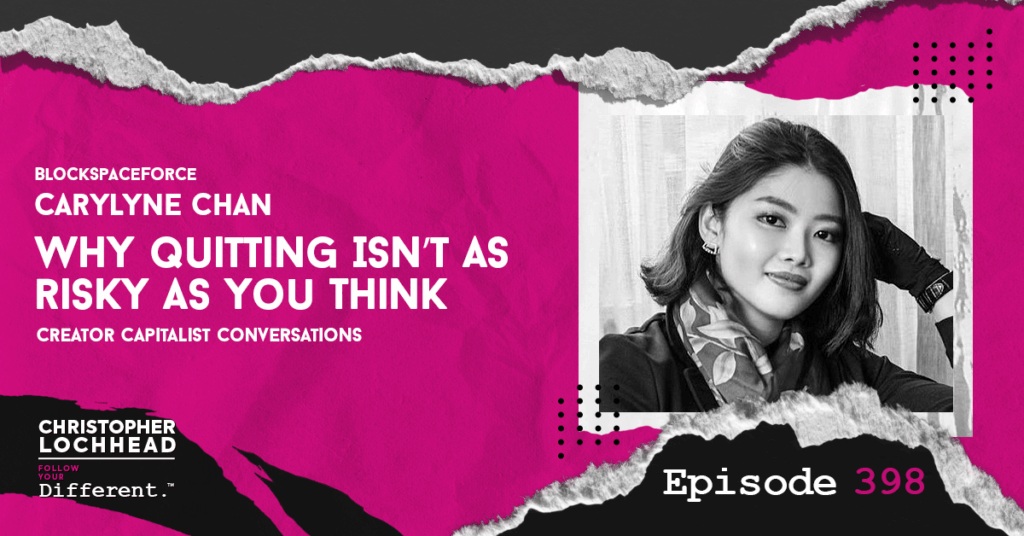
Podcast: Play in new window | Download (Duration: 51:47 — 35.6MB) | Embed
Subscribe: Apple Podcasts | Spotify | Pandora | RSS | More
On this episode of Christopher Lochhead: Follow Your Different, we are treated to an inspiring conversation with Carylyne Chan, a startup founder, investor, and advocate for autonomy and entrepreneurship.
This episode is part of the “Creator Capitalist Conversations” miniseries, which emphasizes the importance of taking control of one’s career and life. Carylyne’s journey from a challenging upbringing in Singapore to becoming a successful entrepreneur in various sectors, including AI and blockchain, offers valuable lessons for anyone looking to carve their own path.
You’re listening to Christopher Lochhead: Follow Your Different. We are the real dialogue podcast for people with a different mind. So get your mind in a different place, and hey ho, let’s go.
Getting to know Carylyne Chan
Carylyne’s story is one of choosing herself rather than waiting to be chosen. As we go further into the episode, we dive into the emotional and psychological aspects of making significant life changes, particularly the leap from traditional employment to entrepreneurship.
Carylyne begins her story by recounting her upbringing in Singapore, where she faced significant challenges, including a turbulent family life. At the age of 14, she took her first internship at the National Environment Agency, which sparked her interest in understanding how people work and the importance of teamwork. This early experience laid the foundation for her entrepreneurial spirit.
Carylyne Chan and her Leap to Entrepreneurship
As Carylyne transitioned from high school to college, she continued to pursue her passion for entrepreneurship. She participated in hackathons and collaborated with friends who shared her interests. This led to the creation of a startup focused on AI chat summarization before it became a mainstream concept. Their journey took them to an accelerator program in Hawaii, where they worked tirelessly to grow their business.
Carylyne then discuss the emotional challenges that accompany the entrepreneurial journey. She highlights the importance of recognizing when one has outgrown their current situation and the courage it takes to make a change. She believes that the biggest risk is not quitting a job that no longer serves you but rather staying in a life that feels unfulfilling.
Discovering Her Superpower
The conversation shifts to the concept of identifying one’s unique strengths or “superpowers.” Carylyne acknowledges that her path to self-discovery has been complex and filled with trial and error. Initially, she viewed herself as an operational person, someone who gets things done. However, as she navigated through her first formal startup, she realized that her skills extended beyond operations to include marketing, design, and leadership.
Christopher and Eddie discuss the significance of emotional intelligence in Carylyne’s success. They highlight her ability to remain calm amidst chaos, a skill that has been honed through her upbringing and experiences. Carylyne’s capacity for rapid synthesis—quickly learning and distilling complex information into actionable narratives—has been a cornerstone of her work as an advisor and entrepreneur.
To hear more about Carylyne Chan and her entrepreneurial journey, download and listen to this episode.
Subscribe to Category Pirates today and join the crew in our Category Design journey on the business seas!
Bio
Carylyne Chan is a Singapore-based entrepreneur and the Co-Founder and former CEO of CoinGecko, a leading global cryptocurrency data platform.
With a background in psychology and marketing from Carnegie Mellon University, she blends analytical thinking with strategic vision to drive innovation in Web3 and fintech.
Carylyne is also a startup advisor and frequent speaker on blockchain, digital assets, and entrepreneurship, recognized for her role in advancing transparency in the crypto space.
Links
Connect with Carylyne Chan!
Website | LinkedIn | X (formerly Twitter)
We hope you enjoyed this episode of Christopher Lochhead: Follow Your Different™! Christopher loves hearing from his listeners. Feel free to email him, connect on Facebook, Twitter, Instagram, and subscribe on iTunes!
397 How To Build A Career That Can’t Be Replicated with Mike Maples, Jr.
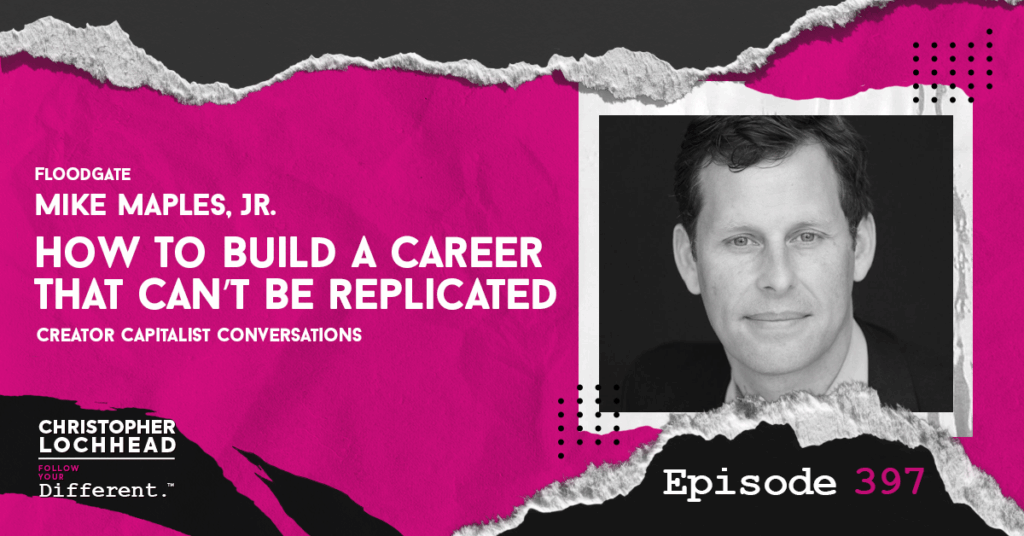
Podcast: Play in new window | Download (Duration: 52:04 — 35.7MB) | Embed
Subscribe: Apple Podcasts | Spotify | Pandora | RSS | More
On this episode of Christopher Lochhead: Follow Your Different, we engage in a riveting conversation with Mike Maples Jr., co-founder of Floodgate and a prominent venture capitalist.
This episode, which is a part of the “Creator Capitalist Conversations” miniseries, goes into the themes of entrepreneurship, personal capital, and the transformative power of artificial intelligence (AI) in the ideation process. The dialogue offers a wealth of insights for aspiring entrepreneurs and seasoned business professionals alike.
You’re listening to Christopher Lochhead: Follow Your Different. We are the real dialogue podcast for people with a different mind. So get your mind in a different place, and hey ho, let’s go.
Mike Maples Jr.’s Journey: From Entrepreneur to Venture Capitalist
Christopher Lochhead sets the stage by introducing the miniseries “Creator Capitalist Conversations,” which celebrates individuals who have carved their own paths in the business world. The episode features Mike Maples Jr., who shares his journey from a successful entrepreneur to a venture capitalist in Silicon Valley. This transition, marked by risk-taking and self-discovery, offers valuable lessons for anyone looking to forge their own path in business.
Mike Maples Jr. recounts his significant career shift from being a well-respected founder and head of marketing for a successful software company in Texas to starting anew in Silicon Valley as a venture capitalist. This transition, he notes, is daunting for many, especially for someone who had already achieved a level of success and recognition. Mike’s approach to risk-taking involves viewing new ventures as opportunities to explore interesting ideas rather than potential failures. This mindset allows him to gradually escalate his commitment as he gains confidence.
Mike Maples Jr. on the Importance of Self-Awareness
Mike shares that the journey to discovering one’s superpowers is often a gradual realization rather than a single defining moment. He emphasizes the importance of honoring one’s time and using it to share one’s unique gifts with the world. This perspective aligns with the Japanese concept of “ikigai,” which represents the intersection of what one loves, what the world needs, what one can be paid for, and what one is good at.
Mike then discusses the distinction between deep work—discovering new knowledge—and harnessing pre-existing knowledge. He notes that many high-paying jobs rely on established knowledge, which may become commoditized in the age of AI. By integrating the insights of others with his unique perspective, Mike has developed a robust intellectual framework that guides his investment decisions.
Exploring Airbnb’s Seed Deck: A Case Study in Innovation
Mike Maples Jr. shares an intriguing case study involving Airbnb’s original seed deck from 2008. Using a software tool he developed, the “Pattern Breakers Insight Stress Test,” he analyzes Airbnb’s business model. This analysis reveals that everyday people would rent their private homes to strangers, creating a new category of accommodation that transcends traditional hotels. This insight is underpinned by several inflection points, including the growing comfort with online transactions and the rising consumer preference for authentic experiences.
Encouraged by the insights gained from Airbnb’s seed deck, Mike explores further possibilities, including creating a business model canvas, potential logo designs, and a narrative framework for Airbnb. This exploration leads him to realize that similar analytical techniques can be applied to various mental models, facilitating ideation and refinement.
To hear more from Mike Maples Jr. and his thoughts on careers that withstand the test of time and tech, download and listen to this episode.
Bio
Mike Maples Jr. is an entrepreneur turned venture capitalist.
He’s co-founder of Silicon Valley based, early-stage VC Floodgate. And the host of the popular “Starting Greatness” podcast.
Investments include Twitter, Lyft, Bazaarvoice, Sparefoot, Ayasdi, Xamarin, Doubledutch, Twitch.tv, Playdom, Chegg, Demandforce, Rappi, Smule, and Outreach.
Link
Connect with Mike Maples Jr.!
Floodgate | Twitter | LinkedIn | Starting Greatness Podcast
Check out Mike’s new book, Pattern Breakers!
Amazon Books | Porchlight Books | Starting Greatness | Pattern Breakers Newsletter
We hope you enjoyed this episode of Christopher Lochhead: Follow Your Different™! Christopher loves hearing from his listeners. Feel free to email him, connect on Facebook, X (formerly Twitter), Instagram, and subscribe on Apple Podcast / Spotify!
396 You Need a Dream, Not a Deck: Zero Billion Dollar Markets with Steve Vassallo
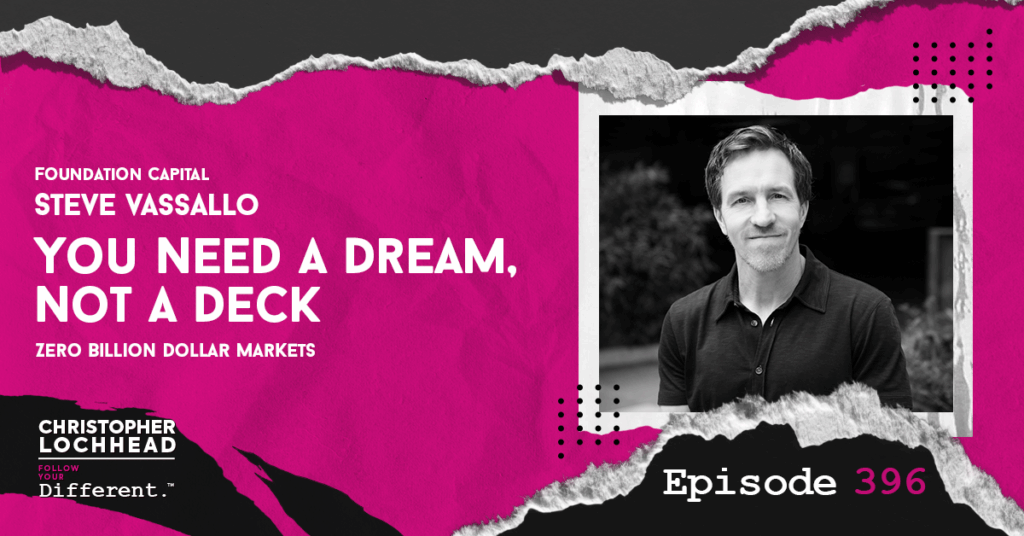
Podcast: Play in new window | Download (Duration: 1:01:52 — 42.5MB) | Embed
Subscribe: Apple Podcasts | Spotify | Pandora | RSS | More
On this episode of Christopher Lochhead: Follow Your Different, we have a dialogue with Steve Vassallo, a General Partner at Foundation Capital, to celebrate the firm’s 30th anniversary and explore the evolution of venture capital (VC) in Silicon Valley.
We discuss the shift of many traditional VC firms from early-stage investments to a more asset management-oriented approach. Steve Vassallo talks about the importance of maintaining a craft-oriented, personalized approach to VC, focusing on product excellence and effective distribution. He also highlights the current trends in AI and blockchain, urging founders to prioritize innovation and core product differentiation in a rapidly changing market.
With nearly 18 years at Foundation Capital, Steve shares his unique insights into the changing landscape of venture capital, the importance of maintaining a craft-oriented approach, and the challenges faced by early-stage founders.
You’re listening to Christopher Lochhead: Follow Your Different. We are the real dialogue podcast for people with a different mind. So get your mind in a different place, and hey ho, let’s go.
Celebrating 30 Years of Foundation Capital
Foundation Capital recently marked its 30th anniversary, a significant milestone in its journey. The firm has launched its 11th fund, a $600 million vehicle aimed at supporting extraordinary founders at the earliest stages of their ventures, particularly in the enterprise sector.
Steve Vassallo adds that more than half of their investments focus on early-stage companies, including seed and Series A rounds, with a strong emphasis on technology, particularly in fintech and crypto.
Steve Vassallo on the Changing VC Landscape
Christopher and Steve Vassallo then discuss the evolution of VC firms, noting that many traditional firms have transformed into asset managers rather than remaining true venture capitalists. Steve points out that the percentage of capital raised by these firms for early-stage investments has dwindled significantly. He estimates that only about 20% of the capital raised by these larger firms is allocated to early-stage investments, with the majority directed towards growth-stage companies.
In contrast, Foundation Capital dedicates approximately 70-80% of their recent fund to backing founders at the inception of their ideas. Steve humorously refers to these early-stage entrepreneurs as “pre-founders” or “pre-criminals,” highlighting the raw potential and creativity that often characterize this stage of entrepreneurship.
The Craft of Venture Capital
Their conversation then moves to the notion that venture capital is fundamentally a craft business rather than a scalable factory-like operation. Christopher likens the venture capital process to crafting custom surfboards, where the quality and personal touch of the creator matter significantly. He argues that the best results come from a deep, personalized partnership with founders, rather than a one-size-fits-all approach.
Reflecting on his own background in product design, Steve Vassallo adds that he initially believed that the best product would always win in the market. However, he quickly learned that effective distribution often trumps product quality. This realization was humbling for him, as he recognized the critical role that marketing and sales play in a product’s success. He stresses that when extraordinary products are paired with exceptional distribution channels, remarkable outcomes can occur.
To hear more from Steve Vassallo and the future of Venture Capital, download and listen to this episode.
Bio
Steve Vassallo is a General Partner at Foundation Capital, where he invests at the intersection of design, technology, and business. Since joining the firm in 2007, he has led investments in transformative companies such as Stripe, Sunrun, Cerebras Systems, and Solana. Steve co-leads Foundation’s crypto practice and is known for backing product-first founders tackling consequential problems
Before venture capital, Steve spent five years as a design engineer at IDEO, developing products for clients like Nike, Cisco, and McDonald’s. He later served as Director of Engineering at Immersion and VP of Product and Engineering at Ning, a social platform he helped launch. His design work has earned him over 77 patents and accolades including the Business Week Design of the Decade Award and Red Dot Award.
Steve holds degrees from Worcester Polytechnic Institute (B.S.), Stanford University (M.S.), and Stanford Graduate School of Business (M.B.A.). He is the author of The Way to Design and hosts Product Minds, a dinner series exploring the art and science of building great products.
Links
Connect with Steve Vassallo!
Website | LinkedIn | X (Formerly Twitter)
We hope you enjoyed this episode of Christopher Lochhead: Follow Your Different™! Christopher loves hearing from his listeners. Feel free to email him, connect on Facebook, Twitter, Instagram, and subscribe on iTunes!
395 Work Is The Reward: How To Design A Career You Never Want To Quit | Pirates Perspective
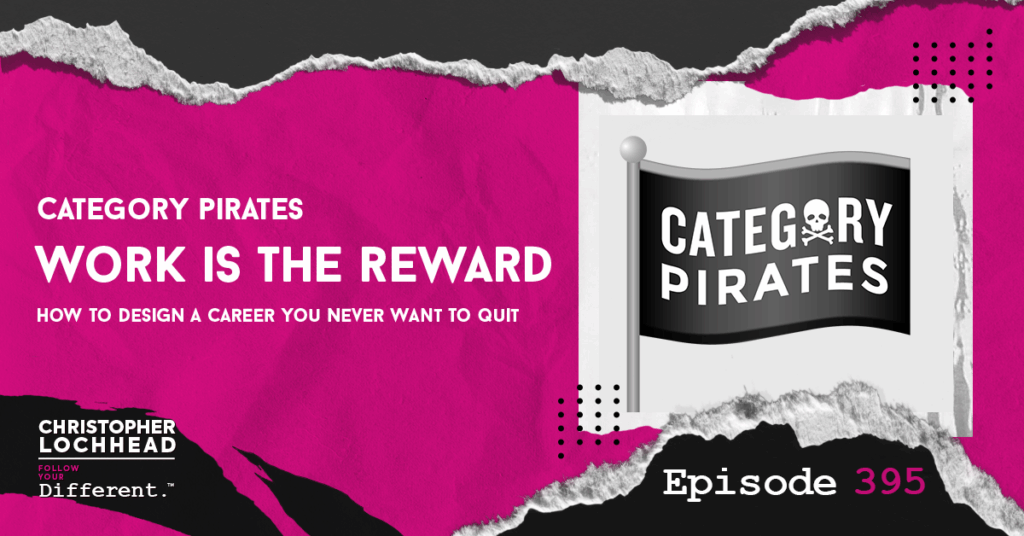
Podcast: Play in new window | Download (Duration: 50:33 — 34.7MB) | Embed
Subscribe: Apple Podcasts | Spotify | Pandora | RSS | More
On this episode of Christopher Lochhead: Follow Your Different, Christopher and his fellow Category Pirates explore the concept of retirement, challenging the traditional notion that it is the ultimate goal of one’s career. Instead, they advocate for a paradigm shift, suggesting that work can be a source of meaning, freedom, and joy.
They discuss the “big retirement lie,” advocating for a life and career one doesn’t want to retire from. Eddie shares his view of retirement as a “runway” for continued growth. The Pirates collectively emphasize the importance of meaningful work and encourage everyone to design careers that align with their passions, making work a rewarding aspect of life.
You’re listening to Christopher Lochhead: Follow Your Different. We are the real dialogue podcast for people with a different mind. So get your mind in a different place, and hey ho, let’s go.
The Concept of Retirement
Christopher sets the stage by inviting listeners to explore what he calls the “big retirement lie.” He challenges the conventional wisdom that retirement is the golden pot at the end of a long work journey. Instead, he suggests that work can be a source of fulfillment and joy, rather than something to escape from.
He cites examples of individuals like Mick Jagger and Dolly Parton, who continue to work and find meaning in their careers well into their later years. The conversation aims to inspire listeners to rethink their relationship with work and consider how they can design a life that integrates work as a rewarding aspect rather than a burdensome obligation.
The “Big Retirement Lie”
Katrina expands on the idea of the “big retirement lie.” She argues that the conventional wisdom of working hard, saving money, and then retiring to enjoy life is flawed. Instead, she encourages listeners to consider how they can design their lives and careers in such a way that they never feel the need to retire. This perspective shifts the focus from a future escape to a present engagement with work that brings joy and satisfaction.
Eddie shares his personal journey and insights regarding retirement. He describes retirement not as a final destination but as a “runway” that allows for continued growth and exploration. He reflects on his own experiences, noting that he has retired multiple times, only to find himself drawn back into work that he loves. Eddie emphasizes that the idea of retirement as a permanent stop is misleading; instead, he views it as a layover on a journey filled with opportunities for new adventures.
The Importance of Meaningful Work
Eddie discusses the significance of meaningful work, arguing that the pursuit of financial freedom should not overshadow the desire for a fulfilling career. He believes that having a financial runway, like sufficient resources to explore new opportunities. can empower individuals to take risks and pursue their passions without the fear of financial instability.
Eddie also touches on the idea of serendipity in career paths. He shares how unexpected opportunities can arise when individuals remain open to new experiences and collaborations. This mindset fosters a sense of adventure and exploration, allowing for personal and professional growth.
To hear more about the Pirate’s Perspectives on Retirement and doing meaningful work, download and listen to this episode.
Subscribe to Category Pirates today and join the crew in our Category Design journey on the business seas!
Don’t forget to grab a copy (or gift!) of one of our best-selling books:
Snow Leopard: How Legendary Writers Create A Category Of One
The Category Design Toolkit: Beyond Marketing: 15 Frameworks For Creating & Dominating Your Niche
A Marketer’s Guide To Category Design: How To Escape The “Better” Trap, Dam The Demand, And Launch A Lightning Strike Strategy
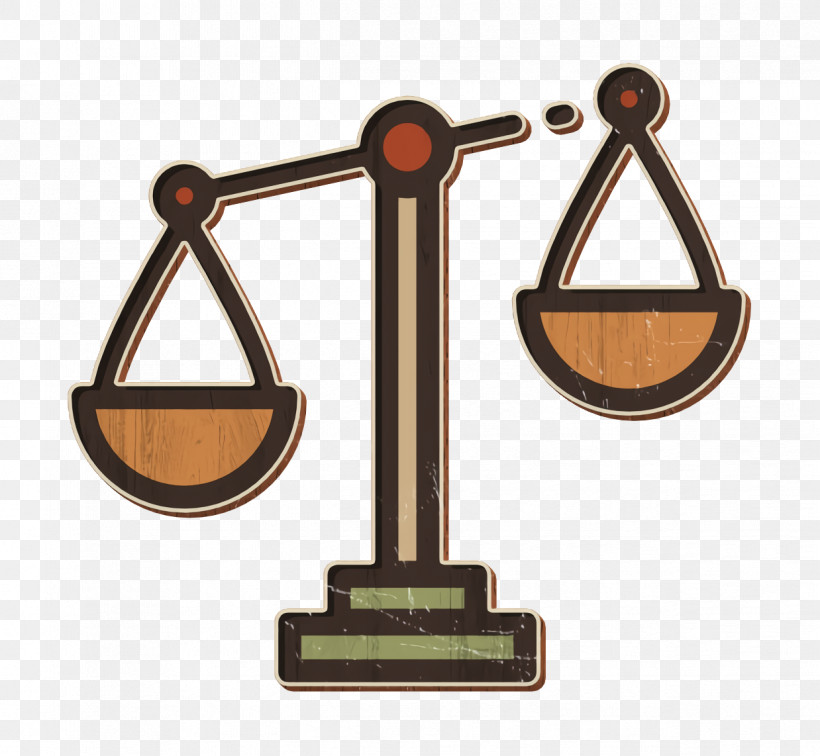 The 22 Laws of Category Design: Name & Claim Your Niche, Share Your POV, And Move The World From Where It Is To Somewhere Different
The 22 Laws of Category Design: Name & Claim Your Niche, Share Your POV, And Move The World From Where It Is To Somewhere Different**NEW!** The B2B Tech Marketer’s Guide To Category Design: How To Engineer Your Market, Find What Makes You Different, And Become A Category Queen
We hope you enjoyed this episode of Christopher Lochhead: Follow Your Different™! Christopher loves hearing from his listeners. Feel free to email him, connect on Facebook, Twitter, Instagram, and subscribe on iTunes!
394 Radical Listening: The Superpower Hiding in Plain Sight with Dr. Christian van Nieuwerburgh & Dr. Robert Biswas-Diener
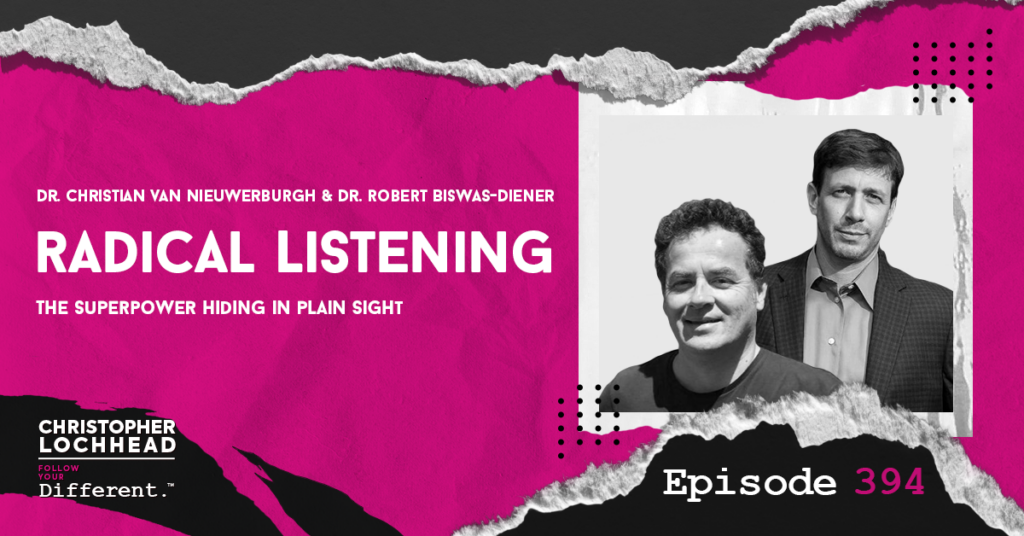
Podcast: Play in new window | Download (Duration: 1:27:55 — 60.4MB) | Embed
Subscribe: Apple Podcasts | Spotify | Pandora | RSS | More
On this episode of Christopher Lochhead: Follow Your Different, we engage with psychologists Dr. Christian van Nieuwerburgh and Dr. Robert Biswas-Diener to explore the concept of radical listening.
We discuss why effective listening is challenging in today’s fast-paced, technology-driven world and identify cultural and emotional barriers that hinder genuine communication. We’ll also highlight how radical listening can transform personal and professional relationships by making others feel seen, valued, and heard through active curiosity and empathy.
This episode serves as a call to action for listeners to cultivate deeper connections through intentional and empathetic listening practices.
You’re listening to Christopher Lochhead: Follow Your Different. We are the real dialogue podcast for people with a different mind. So get your mind in a different place, and hey ho, let’s go.
Introduction to Radical Listening
Christopher sets the stage by introducing his esteemed guests, Dr. Christian van Nieuwerburgh and Dr. Robert Biswas-Diener. He poses them a critical question: why do so many people struggle with listening effectively? This question serves as the foundation for a deep dive into the nuances of listening and its impact on human connection.
Dr. van Nieuwerburgh begins by highlighting a paradox: despite being born with the ability to hear, many individuals fail to listen well. He attributes this to several factors: our current fast-paced modern lifestyles, technological distractions, and each person’s internal emotional barriers.
Dr. Biswas-Diener adds that cultural dynamics play a significant role in shaping our listening habits. In Western societies, individualism often leads to conversations becoming competitions for airtime. People frequently listen with the intent to respond rather than to understand, resulting in superficial interactions. This “waiting to talk” mentality is a significant barrier to genuine listening.
The Importance of Curiosity
Chistopher shares his personal journey of self-discovery, emphasizing the importance of personal development in improving listening skills. He recalls a coach who taught him that what many people call listening is often just waiting for their turn to speak. This insight underscores the need for a shift in mindset.
Dr. van Nieuwerburgh agrees and adds that a key aspect of radical listening is approaching conversations with curiosity. When individuals genuinely seek to understand others, they create a space for deeper connection. This involves asking them open-ended questions, avoiding assumptions, and practicing patience and letting the other person finish their thoughts without interruption.
Cultural Influences on Listening
The conversation shifts to the impact of technology and social media on listening habits. Christopher points out that many platforms prioritize self-promotion and broadcasting over genuine interaction. This environment fosters a culture of “me first,” where individuals are more concerned with sharing their own experiences than engaging with others.
Christopher also reflects on the teachings of Stephen Covey, who emphasized the importance of seeking first to understand before being understood. He contrasts this with the current trend of self-centered communication, where individuals prioritize their own narratives over listening to others. Dr. Biswas-Diener acknowledges this shift and highlights the need for a rebranding of listening practices to emphasize connection rather than mere comprehension.
To hear more from Dr. Christian van Nieuwerburgh & Dr. Robert Biswas-Diener and how Listening can be a superpower in everyday life, download and listen to this episode.
Bio
Dr. Christian van Nieuwerburgh
Dr. Christian van Nieuwerburgh is a distinguished executive coach, academic, and consultant, renowned for his contributions to coaching and positive psychology. He currently serves as Professor of Coaching and Positive Psychology at the Centre for Positive Health Sciences at RCSI University of Medicine and Health Sciences in Ireland and is a Principal Fellow at the Centre for Wellbeing Science at the University of Melbourne. Additionally, he holds the position of Consulting Professor, supporting Growth Coaching International and the Instructional Coaching Group.
Dr. van Nieuwerburgh has authored and edited numerous influential works in the field, including “An Introduction to Coaching Skills: A Practical Guide” and “Coaching in Education: Getting Better Results for Students, Educators and Parents.” His research interests encompass intercultural coaching, the creation of coaching cultures, and the integration of coaching within educational settings. He is also the editor-in-chief of “Coaching: An International Journal of Theory, Research and Practice.”
Passionate about fostering positive learning environments, Dr. van Nieuwerburgh collaborates with educational institutions worldwide to implement coaching initiatives. His work emphasizes the transformative power of coaching in education, aiming to enhance outcomes for students, educators, and parents alike.
Dr. Robert Biswas-Diener
Dr. Robert Biswas-Diener is a psychologist, researcher, and author renowned for his work in positive psychology. Dubbed the “Indiana Jones of Positive Psychology,” he has conducted research on happiness and well-being among diverse groups, including the Amish, Inuit, and Maasai.
He has authored over 75 peer-reviewed articles and multiple books, such as “Positive Provocation” (2023) and “The Upside of Your Dark Side” (2014). His research focuses on topics like happiness, strengths, and leadership.
As an executive coach and trainer, Dr. Biswas-Diener has worked with organizations worldwide, including Deloitte and the Australia Department of Defense. In 2024, Thinkers50 recognized him as one of the 50 most influential executive coaches globally.
Links
Connect with Dr. Christian van Nieuwerburgh & Dr. Robert Biswas-Diener!
Dr. Robert Biswas-Diener
LinkedIn | Website
Dr. Christian van Nieuwerburgh
LinkedIn | X (formerly Twitter)
We hope you enjoyed this episode of Christopher Lochhead: Follow Your Different™! Christopher loves hearing from his listeners. Feel free to email him, connect on Facebook, Twitter, Instagram, and subscribe on iTunes!

